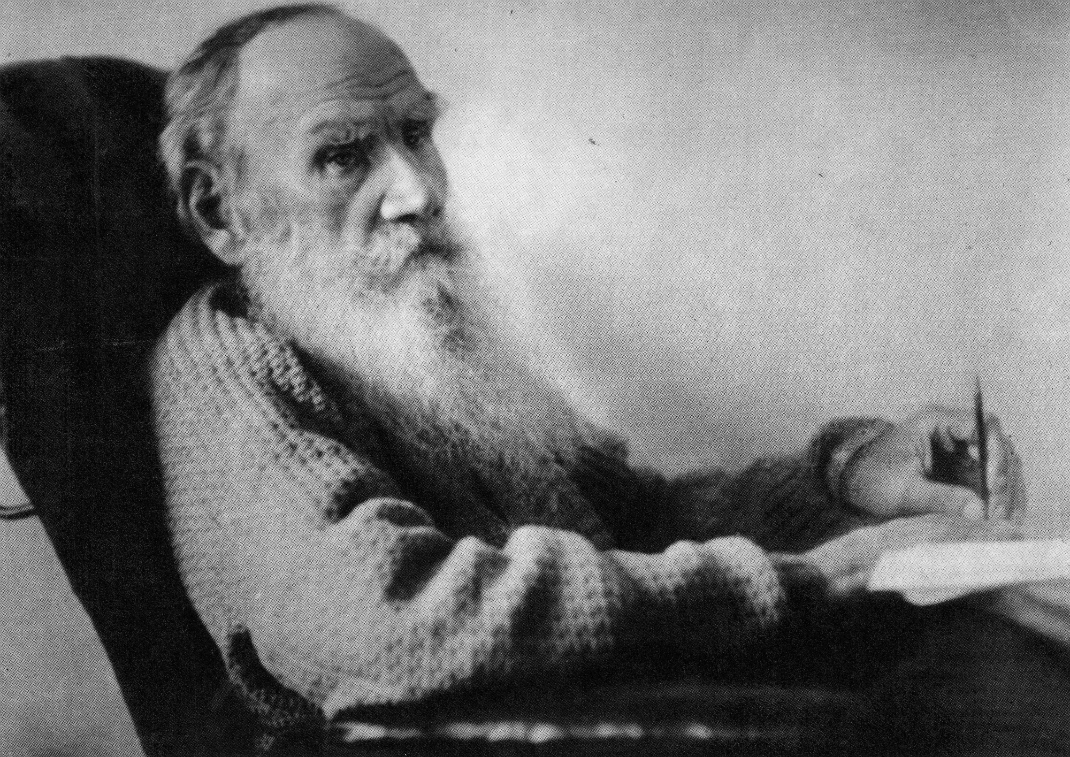
I was repelled by the fact that these people’s lives were like my own, with only this difference—that such a life did not correspond to the principles they expounded in their teachings. I clearly felt that they deceived themselves and that they, like myself, found no other meaning in life than to live while life lasts, taking all one’s hands can seize. I saw this because if they had had a meaning which destroyed the fear of loss, suffering, and death, they would not have feared these things. But they, these believers of our circle, just like myself, living in sufficiency and superfluity, tried to increase or preserve them, feared privations, suffering, and death, and just like myself and all of us unbelievers, lived to satisfy their desires, and lived just as badly, if not worse, than the unbelievers.
No arguments could convince me of the truth of their faith. Only deeds which showed that they saw a meaning in life making what was so dreadful to me—poverty, sickness, and death—not dreadful to them, could convince me. And such deeds I did not see among the various believers in our circle. On the contrary, I saw such deeds done by people of our circle who were the most unbelieving, but never by our so-called believers.
Leo Tolstoy, A Confession
What then?
And I began to draw near to the believers among the poor, simple, unlettered folk: pilgrims, monks, sectarians, and peasants. The faith of these common people was the same Christian faith as was professed by the pseudo-believers of our circle. Among them, too, I found a great deal of superstition mixed with the Christian truths; but the difference was that … the whole life of the working-folk believers was a confirmation of the meaning of life which their faith gave them. And I began to look well into the life and faith of these people, and the more I considered it the more I became convinced that they have a real faith which is a necessity to them and alone gives their life a meaning and makes it possible for them to live. In contrast with what I had seen in our circle—where life without faith is possible and where hardly one in a thousand acknowledges himself to be a believer—among them there is hardly one unbeliever in a thousand. In contrast with what I had seen in our circle, where the whole of life is passed in idleness, amusement, and dissatisfaction, I saw that the whole life of these people was passed in heavy labor, and that they were content with life. In contradistinction to the way in which people of our circle oppose fate and complain of it on account of deprivations and sufferings, these people accepted illness and sorrow without any perplexity or opposition, and with a quiet and firm conviction that all is good. In contradistinction to us, who the wiser we are the less we understand the meaning of life, and see some evil irony in the fact that we suffer and die, these folk live and suffer, and they approach death and suffering with tranquility and in most cases gladly. In contrast to the fact that a tranquil death, a death without horror and despair, is a very rare exception in our circle, a troubled, rebellious, and unhappy death is the rarest exception among the people. And such people, lacking all that for us and for Solomon is the only good of life and yet experiencing the greatest happiness, are a great multitude. I looked more widely around me. I considered the life of the enormous mass of the people in the past and the present. And of such people, understanding the meaning of life and able to live and to die, I saw not two or three, or tens, but hundreds, thousands, and millions. And they all—endlessly different in their manners, minds, education, and position, as they were—all alike, in complete contrast to my ignorance, knew the meaning of life and death, labored quietly, endured deprivations and sufferings, and lived and died seeing therein not vanity but good.
And I learned to love these people. The more I came to know their life, the life of those who are living and of others who are dead of whom I read and heard, the more I loved them and the easier it became for me to live. So I went on for about two years, and a change took place in me which had long been preparing and the promise of which had always been in me. It came about that the life of our circle, the rich and learned, not merely became distasteful to me, but lost all meaning in my eyes. All our actions, discussions, science and art, presented itself to me in a new light. I understood that it is all merely self-indulgence, and that to find a meaning in it is impossible; while the life of the whole laboring people, the whole of mankind who produce life, appeared to me in its true significance. I understood that that is life itself, and that the meaning given to that life is true: and I accepted it.

One thought on “And I Learned to Love These People”